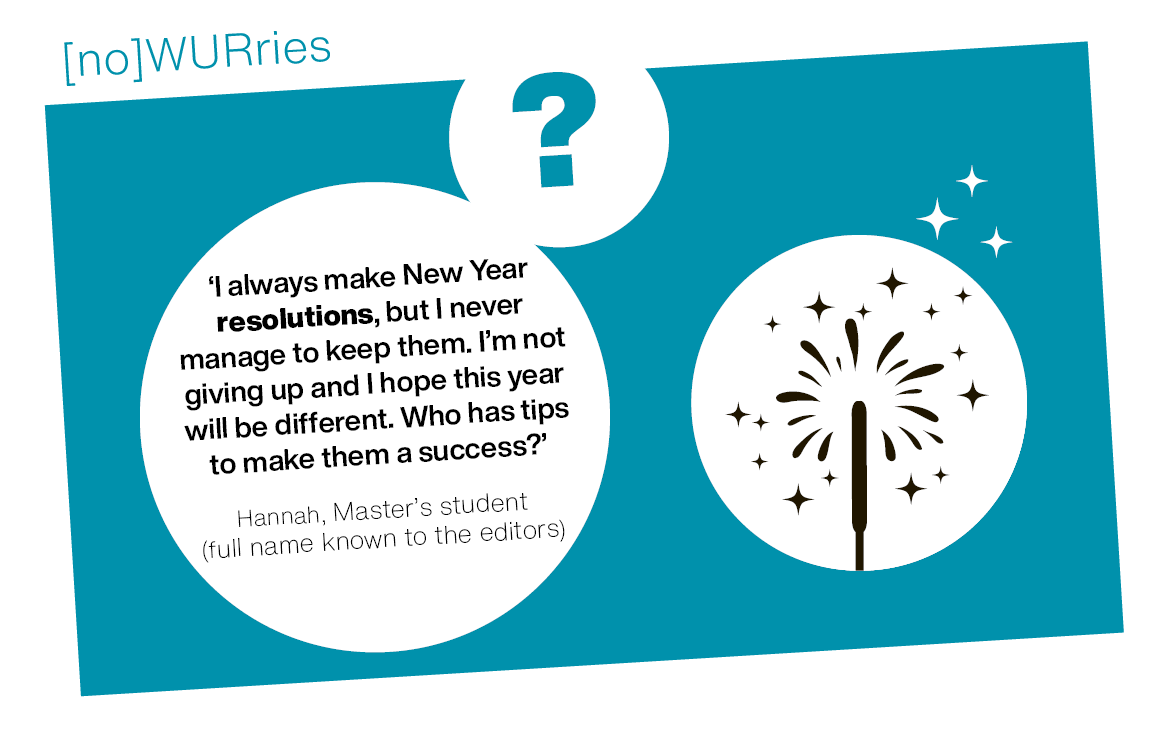Small steps
‘If you’ve got resolutions in mind this time that you really want to keep, ask yourself what you want to achieve by them, and what need is behind them. Maybe there are other ways of achieving that goal, and possibly some more feasible ones. And you don’t always have to start making a change with big steps. Divide your goal into small steps and then you can gently work towards the future you have in mind. That always works well for me. Good luck!’
Andrea Bolhuis, Senior Buyer
Be kind to yourself
‘Think about why these resolutions are so important to you. Does the wish to change come from you or from someone else? You can only keep resolutions when the motivation is your own. Next, set realistic goals. Start with one day, then a week and then a month: that way you’ll automatically get into the swing of it. Reward yourself when you reach a milestone. And if it goes a bit wrong at some point, be kind to yourself and don’t throw in the towel straight away. Ignore the negative voice in your head and tell yourself what you would tell a good friend to keep their spirits up.’
Tamara Vreman, Agile Coach
Not too rigid
‘Don’t be too rigid about your New Year resolutions but see them as a starting point or a working method that you can adjust in the course of the year. When you are working on yourself, you go on learning and you use your new experiences to adjust how you go about it. That way you won’t be disappointed if you haven’t achieved your resolutions by the end of the year.’
Nico Polman, Economics researcher at Green Economy and Land Use
Don’t wait
‘A familiar problem. That’s why I don’t make New Year resolutions anymore. First, ask yourself whether you yourself want to change, or whether it’s the people around you who think you should. For the things that you do really want to change, you can consider whether your New Year resolutions really will lead to the desired behavioural change. If so, put your resolutions into action at once and don’t wait until 1 January. Enjoy the process and don’t be too critical of the result. And lastly, a very boring tip: early to bed and early to rise… helps get things done!’
Janine Quist, programme manager for Lifelong Learning at Wageningen Academy
Next [WUR]ry:

Do you have advice for this Wurrier? Or could you use some good advice yourself? Email your tips or question (100 words max) by 5 January to resource@wur.nl, subject noWURries.


![[no]WURries: Flight Shame](https://www.resource-online.nl/app/uploads/2022/06/noWURries_online_1618_UK.png)
![[no]WURries: A reserved colleague](https://www.resource-online.nl/app/uploads/2022/05/noWURries_online_1617_UK.png)
![[no]WURries: Disrespectful communicating](https://www.resource-online.nl/app/uploads/2022/05/noWURries_online_1616_UK.png)